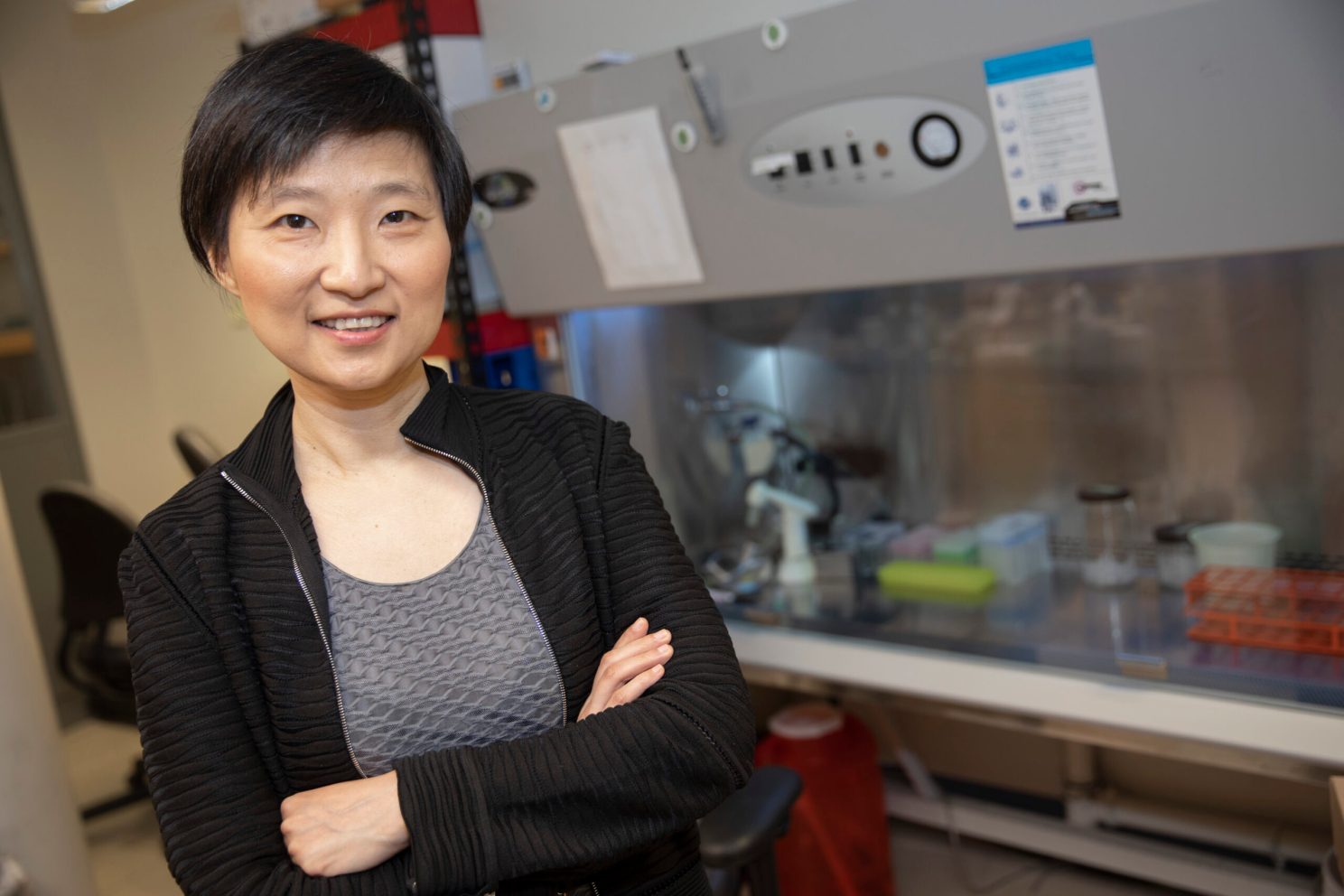Xiaowei Zhuang wins 2022 Heinrich Wieland Prize

Xiaowei Zhuang has been recognized for making seminal discoveries in cell and neurobiology with imaging technologies she developed. Kris Snibbe/Harvard Staff Photographer
Xiaowei Zhuang, David B. Arnold Jr. Professor of Science, has won the 2022 Heinrich Wieland Prize of the Boehringer Ingelheim Foundation for making seminal discoveries in cell and neurobiology with the ingenious imaging technologies she developed. This international award honors outstanding research on biologically active molecules and systems in the fields of chemistry, biochemistry, and physiology, as well as their clinical importance.
“What makes Xiaowei Zhuang’s achievements so exceptional is that she has not only invented these technologies but also applied them to make discoveries in cell biology and neurobiology that will change the textbooks,” says F. Ulrich Hartl, chair of the international board of scientists that selects the Heinrich Wieland laureates. “She has, for example, discovered a new part of the cell skeleton in nerve cells. No one had expected it to be there, although we now know that it is found in the brains of organisms as diverse as worms and humans.”
Zhuangs’s invention, STORM — short for STochastic Optical Reconstruction Microscopy — is one of the first imaging technologies to overcome the physical boundary (diffraction limit) of resolution in light microscopy. It thus enables us to observe single proteins performing their job within the crowded environment of intact, living cells.
“Seeing is believing. It is such a thrill looking at the beautiful images of molecules in cells and cells in tissues generated by STORM and MERFISH,” Zhuang said “When these images revealed something totally new, the feeling is even more remarkable!”
Over the past 16 years, Zhuang, as well as scientists worldwide, have gained valuable insights into complex biological processes using STORM, her super-resolution method, and MERFISH, her genome-scale imaging method.
“Her discoveries enable us to better understand how cells and organisms function in health and what goes wrong in disease,” says Christoph Boehringer, chairman of the executive committee of the Boehringer Ingelheim Foundation. “We are also sure that the fantastic tools Zhuang has given the research community will enable many more exciting discoveries, by her and other scientists worldwide.”
The 100,000-euro prize is named after Nobel Laureate Heinrich Otto Wieland (1877–1957) and has been awarded annually since 1964. Among the awardees — selected by a scientific Board of Trustees — are four subsequent Nobel laureates. Since 2011, the prize has been endowed by the Boehringer Ingelheim Foundation, an independent, nonprofit organization that is committed to the promotion of the medical, biological, chemical, and pharmaceutical sciences.





